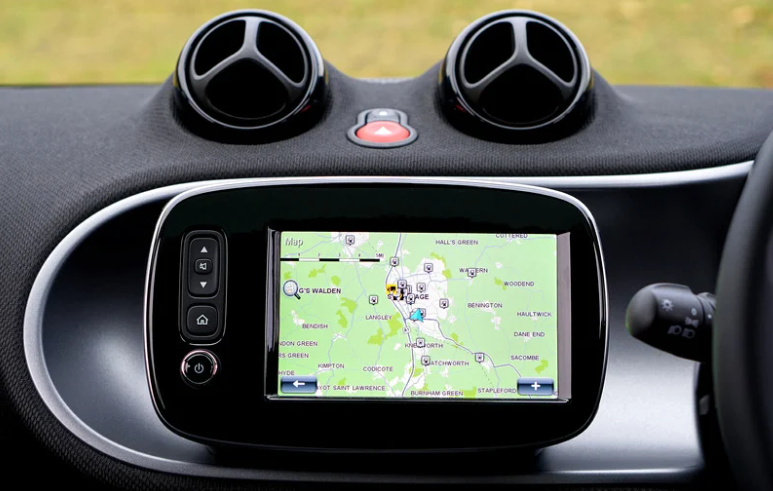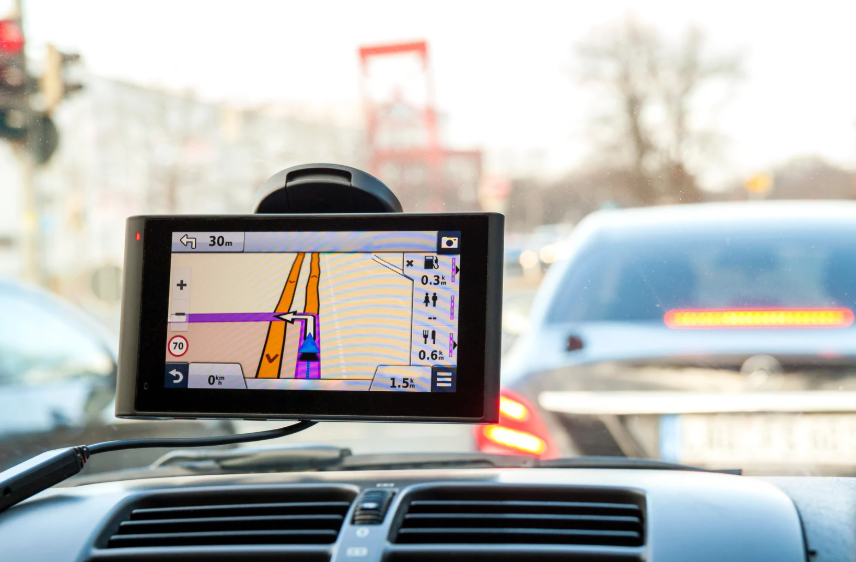Have you ever been stuck in a traffic jam and wondered if there was a better way to get to your destination?
The good news is, modern car GPS systems can help save your day. With real-time traffic updates and dynamic rerouting, these systems help you avoid traffic jams and save valuable time on the road.
I’ve explored how these tools work and can make your daily commute or long journey smoother.
Let’s find out how GPS navigation can be your ultimate road companion, keeping you out of traffic and on the fastest route.
Real-Time Traffic Data
One of the key features of modern GPS systems is the ability to provide real-time traffic data. This feature allows your GPS device to monitor the current traffic conditions along your route, instantly alerting you to any slowdowns or accidents ahead.
As a result, the system can suggest alternate routes that might be faster, keeping you out of heavy traffic and on track.
Real-time traffic data comes from a variety of sources, including satellite signals, traffic cameras, and crowdsourced data from other drivers using GPS apps.
This information is processed and delivered to your device in real-time, ensuring that your route is continuously updated.
Instead of relying on old maps, you’ll always have the latest road conditions at your fingertips.
GPS Traffic Rerouting
GPS traffic rerouting is one of the most useful features when it comes to avoiding traffic congestion.
When your GPS detects a slowdown, it will automatically suggest a detour, allowing you to bypass the traffic jam and get back on track.
This feature is particularly helpful during rush hour when unexpected bottlenecks can cause delays.
For instance, if you’re heading to work and find that the usual route is clogged with traffic, the GPS will suggest an alternate route with fewer cars, helping you save time.
This dynamic rerouting can be a lifesaver, especially on busy highways or city streets where traffic can change unpredictably.
Dynamic Route Adjustments
Dynamic route adjustments are another powerful feature that enhances the accuracy of GPS systems.
Unlike traditional maps that only show one fixed route, modern GPS systems can adjust your path based on new traffic conditions, weather, or accidents.
If something unexpected happens on your usual route—like a sudden construction project or a road closure—your GPS will immediately re-route you to a better alternative.
This flexibility ensures you’re always on the most efficient route, no matter what obstacles come your way.
The ability to adjust routes dynamically means that you’re not locked into a single path, giving you more options for a faster, stress-free trip.
Time-Saving Navigation
The primary goal of using a GPS system is to save time. Whether you’re commuting to work, running errands, or taking a long road trip, a GPS system helps you find the fastest routes, avoid delays, and get to your destination more quickly.
With traffic rerouting and real-time updates, your GPS system ensures that you’re always on the most efficient route, which translates to less time spent behind the wheel.
By avoiding unnecessary traffic and taking shortcuts when available, GPS systems can significantly reduce your overall travel time.
This is particularly helpful for commuters who spend a lot of time on the road, as it makes each trip more productive and less frustrating.
GPS for Long-Distance Travel

When it comes to long-distance travel, GPS systems can be incredibly helpful in saving time and avoiding traffic.
Long trips often involve a mix of highways, local roads, and toll routes, and a GPS system can provide the best possible combination of these to keep you on track.
In addition to offering traffic updates, GPS systems also help with things like fuel efficiency.
For example, the GPS might suggest a route that avoids heavy city traffic, which helps you save both time and gas money.
Moreover, if you’re unfamiliar with the area, the GPS can guide you to the best rest stops or attractions along the way, making your journey more enjoyable and efficient.
Avoiding Traffic Congestion
Traffic congestion is one of the biggest causes of stress for drivers.
Long delays can leave you feeling frustrated, especially when you’re running late for an appointment or a meeting.
Thankfully, GPS systems can help reduce the time spent in traffic by alerting you to congestion ahead and suggesting ways to avoid it.
Many GPS apps provide traffic maps that highlight congested areas in red or orange, letting you see which routes to avoid.
This information can be invaluable when planning your trip. Whether you’re heading to work or taking a weekend trip, knowing where the traffic is can help you navigate the roads with less stress.
GPS Navigation Apps
In addition to dedicated car GPS systems, GPS navigation apps on smartphones have become increasingly popular.
These apps offer many of the same features as in-car systems, including real-time traffic data, rerouting, and dynamic route adjustments.
Apps like Google Maps, Apple Maps, and Waze can help you navigate efficiently without the need for a physical GPS device.
Smartphone apps have the added advantage of being portable and accessible wherever you go.
You can use them not only in your car but also when walking or using public transportation.
The convenience of GPS apps makes them an essential tool for anyone looking to avoid traffic and save time on the road.
Long-Distance Travel Routes
When you’re traveling long distances, finding the fastest route is crucial.
GPS systems are designed to calculate the quickest path to your destination, taking into account various factors like traffic, road conditions, and even the time of day.
By using a GPS system, you can avoid getting lost or taking unnecessary detours, ensuring that you arrive at your destination as quickly as possible.
Some GPS systems even allow you to plan your route in advance, so you can see the best options before you hit the road.
This is especially useful for long road trips, where you may be covering hundreds of miles and want to make the most of your time on the road.
Traffic Avoidance Tools
While GPS systems are the most common traffic avoidance tool, there are other technologies that can help you navigate traffic more effectively.
For example, some vehicles are equipped with adaptive cruise control, lane assist, and collision avoidance systems that work in conjunction with GPS to keep you safe and reduce travel time.
These tools can help you maintain a steady pace even in heavy traffic, making it easier to avoid accidents and keep your trip on track.
Many new cars also feature advanced infotainment systems that integrate GPS with traffic data, providing a seamless driving experience.
Time-Saving Tools Right at Your Fingertips
In conclusion, GPS systems are invaluable when it comes to avoiding traffic and saving time.
With real-time traffic data, rerouting, dynamic route adjustments, and more, these systems make it easier to get where you need to go quickly and efficiently.
Whether you’re commuting, running errands, or traveling long distances, a GPS system can help you stay ahead of traffic and enjoy a smoother ride.
